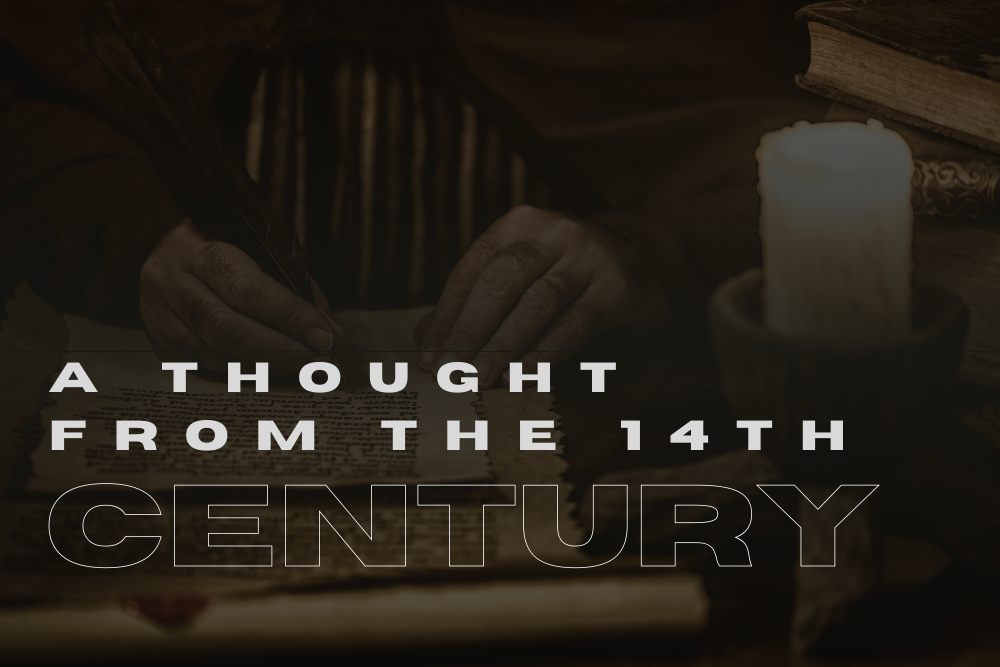Mark Harris writes:
A few years ago, a writer came to my attention who introduced me to the notion of three comings of Jesus…the notion coming from the pen of a fourteenth century Flemish writer, John of Ruysbroeck (1293-1381).
For Ruysbroeck the incarnation marked the first coming of Jesus…[Ruysbroeck’s] third coming of Jesus is what we refer to as the second coming. But for followers of Jesus who live in between these two comings, our most appropriate focus is neither Ruysbroeck first or third coming of Jesus. We need to look for his second coming.
What is his second coming? “The second coming takes place daily, often and many times, in every living heart, with new graces and with new gifts, as each is able to receive them.” For Ruysbroeck the pressing question for a Christian is not how much historical investigation I have done into the first coming of Jesus, neither is it how much I know about the alleged signs of his third coming at the end of time. The pressing question for the Christian must be, how did Jesus come into my life, my world today. [1]
I don’t think Ruysbroeck was trying to redefine the Second Coming as outlined in the Scripture; rather, it was a provocative way to express the need for believers to recognize Jesus in their lives each and every day.
Truthfully, Jesus dealt with this principle—the now sandwiched between the yesterday and the tomorrow (the first and the second coming of Jesus) with the sisters of Lazarus in John chapter 11.
Recall how Lazarus had been dead four days and “laid in a cave with a stone covering it” (John 11:38).
Notice how both sisters had faith in yesterday:
Martha then said to Jesus, “Lord, if You had been here, my brother would not have died (v. 21); Therefore, when Mary came where Jesus was, she saw Him, and fell at His feet, saying to Him, “Lord, if You had been here, my brother would not have died” (v. 32, emphasis mine).
Martha even expressed faith in tomorrow:
Martha *said to Him, “I know that he will rise again in the resurrection on the last day” (v. 24, emphasis mine).
But Jesus, the I am that I am and who is always present, deals with the now,
Jesus *said to her, “Did I not say to you that if you believe, you will see the glory of God?… He cried out with a loud voice, ‘Lazarus, come forth.’ The man who had died came forth, bound hand and foot with wrappings, and his face was wrapped around with a cloth. Jesus *said to them, ‘Unbind him, and let him go’” (v. 40, 43, 44).
To harmonize with Ruysbroceck’s thought of recognizing Jesus in a believer’s everyday life, the challenge is to genuinely accept the Lord’s omnipresence. We have a past, present, and future yet, the Lord is always present. Thus, to sandwich faith for the now where Jesus always lives between our faith from yesterday’s experiences and the future’s expectations will bring Ruysbroceck’s desired recognition into reality.
And it would be a meal fit for the King!



